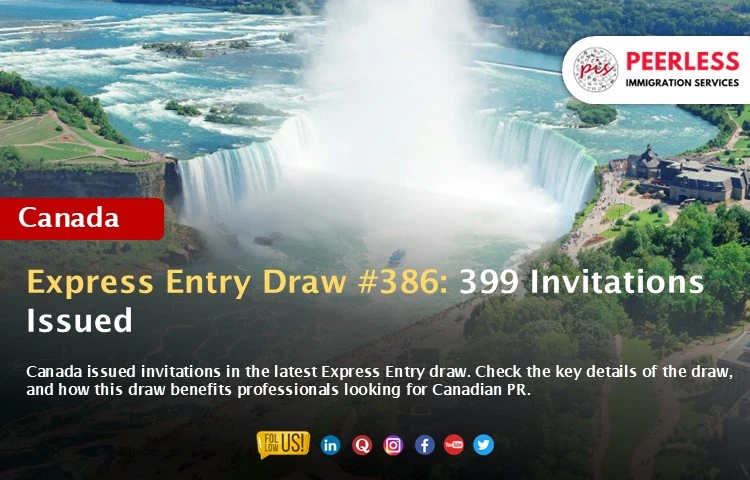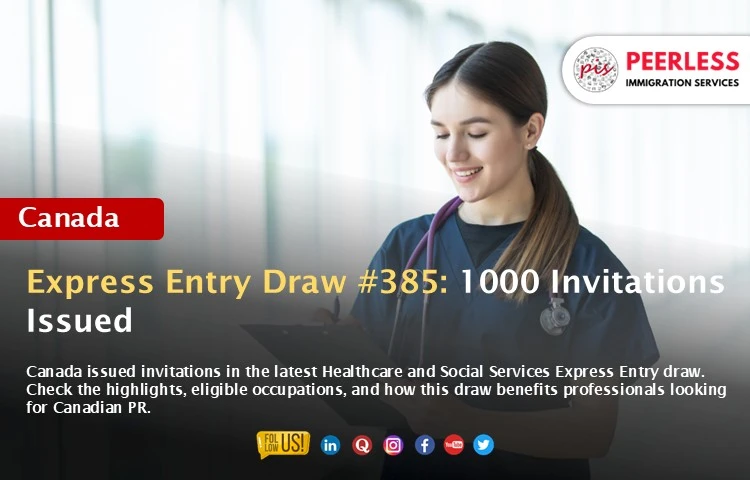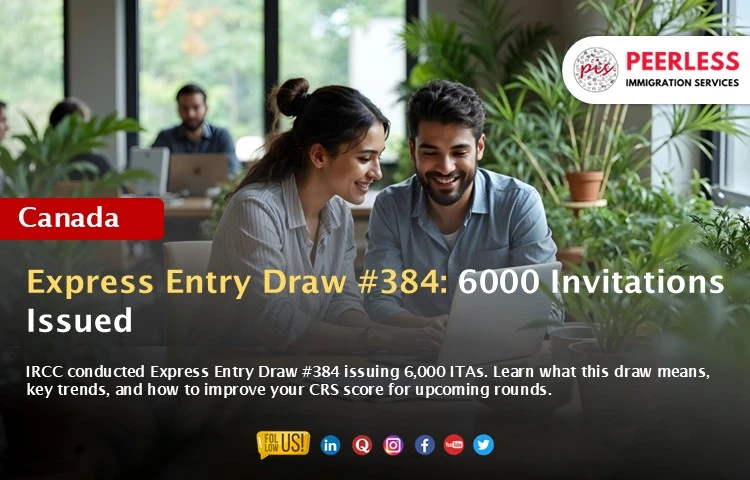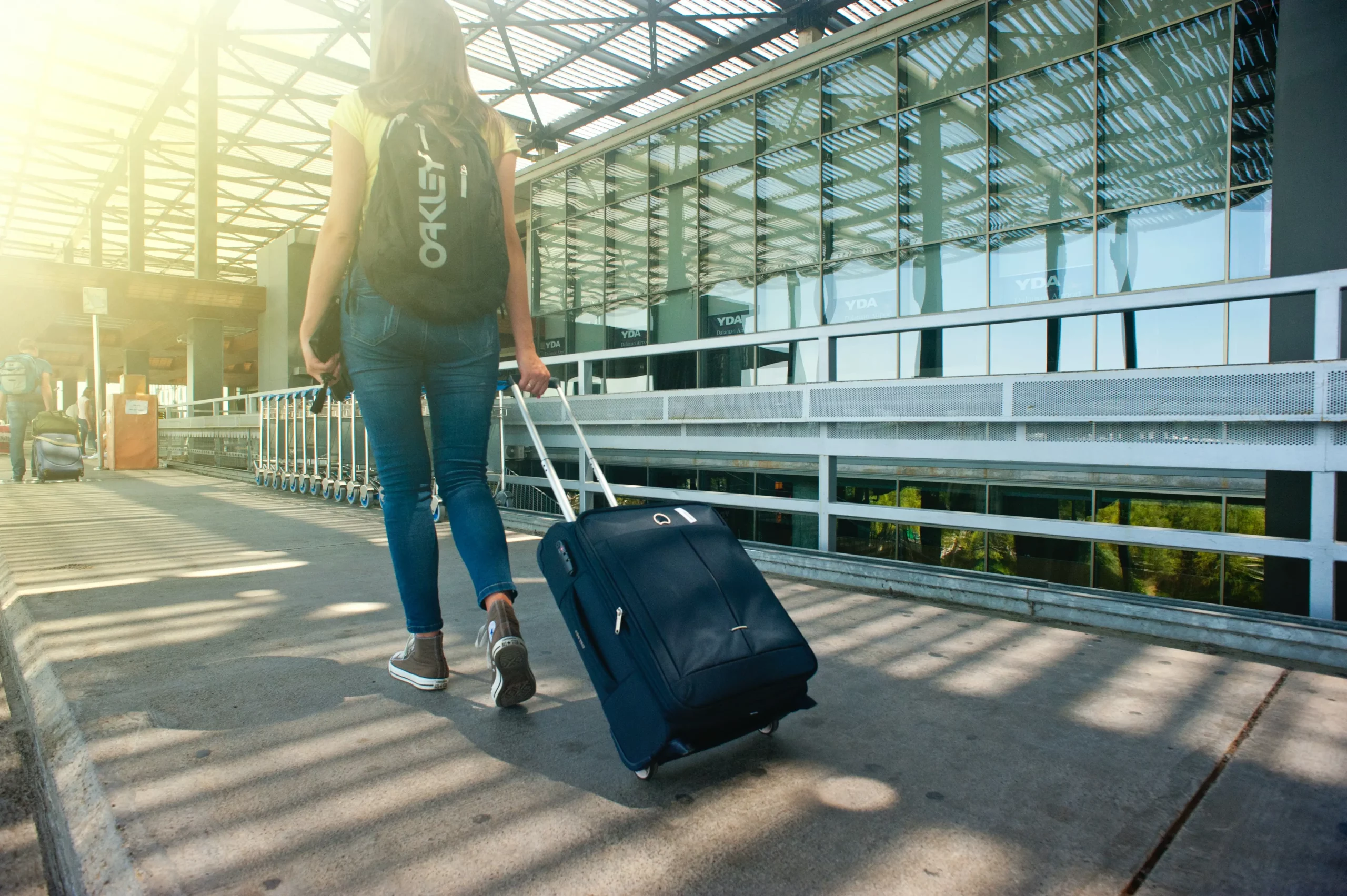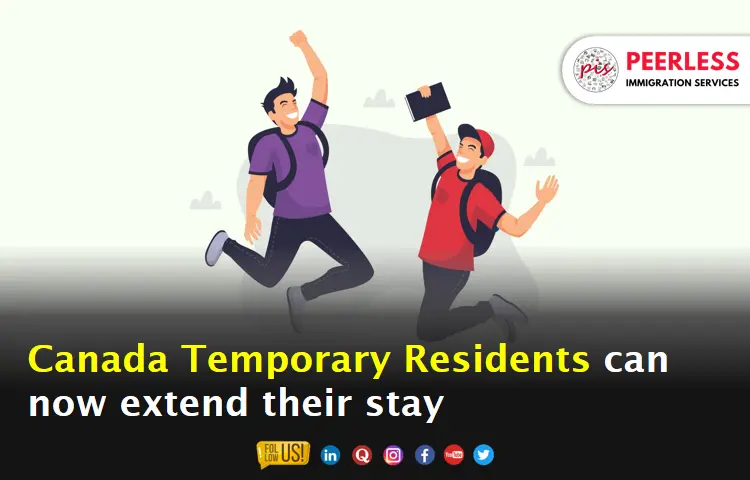
Canada Temporary Residents can now extend their stay
Temporary residents: Status is maintained while processing is being completed (formerly known as inferred status).
Unlike in the previous Immigration Act of 1976, status and authority to enter are not linked under the Immigration and Refugee Protection Act (IRPA) and the Immigration and Refugee Protection Regulations (IRPR).
Under the IRPA, all foreign people permitted to enter Canada pursuant to A22 (1) hold the status of temporary residents.
A temporary resident may, however, submit a request to have their time of authorized residence extended before it ends under section R181.
Consequently, for the duration of the application’s processing, this person is considered to hold valid temporary resident status.
The group of temporary residents includes those who have a temporary resident permit (TRP), however when a foreign national asks for a new TRP, they are not doing so under section R181; rather, they are obtaining a new TRP under section A24.
Date and time the request was received
If the status is maintained under R183 (5), it is vital to know when the application was received.
Since all requests must be made by midnight UTC on the day the requester’s status expires, reception dates and timings are independent of time zones.
The requester loses their status under R183 (5) if the request was submitted after midnight UTC on the expiration date.
A temporary resident may work or study without a permit under the same conditions while waiting for a decision on his application for renewal, provided that they remain in Canada.
Except in certain circumstances, all applications for guest visas, study permits, and extensions of work permits must be submitted electronically.
View the list of Canadian programs that are exempt from the demand for online applications.
When traveling outside Canada
Upon their return, a temporary resident whose length of stay has been extended under R183 (5) and who has left Canada will be assessed and may be given the following permissions:
- To return to Canada as a temporary resident while awaiting word on whether their work or study permit in Canada will be extended;
- To submit an application for a new work or study permit at the port of entry, if qualified.
Return to Canada as a temporary resident
If a candidate is exempt from the temporary resident visa requirement (VRT) under article R190 or has a valid multiple entrance visa, they may be allowed to return to Canada as temporary residents while waiting for a decision on the extension of their study or employment permit in Canada.
Upon admission, the border services agent will decide the permitted length of stay.
According to subparagraph R190(3)(f)(ii), temporary residents of TRV countries who have had their authorized length of stay extended under R183(5) and who are requesting to return to Canada after a trip that exclusively included stops in the United States or Saint-Pierre-et-Miquelon are regarded to be free from TRV.
No matter whether his authorized duration of stay has been extended in accordance with paragraph R183(5) or not, a national of a country subject to the TRV obligation who has traveled somewhere other than the United States or Saint Pierre and Miquelon is not free from the requirement.
Regardless of the De Brito ruling, the right to work and study without a permit under R186 (u) or R189 expires when Canada leaves the country.
The applicant is not allowed to return to work or study in Canada if the new study or work visa has not been issued before their return and their renewal application has not been accepted.
Making a request for a new work or study permit
If the applicant complies with Section R198 or R214 standards, they may be allowed to submit an application for a new work or study permit at the port of entry. New fees and supporting documentation must be paid for each application.
Note :It is strongly advised that the officer asks for documentation that an application has been submitted for an extension as a visitor, student, or worker in case they are unable to confirm the application in the Global Case Management System (GCMS) (photocopies of the application, photocopies of the receipt for payment of fees, etc.).
Impact of the Judgment on the permitted length of Stay
Request accepted
The document’s grant date indicates the day a choice was made if the extension request is authorized. The authorized term of stay is now the same length of time as the new document’s validity.
The applicant has until the end of the length of stay specified by the border services officer or the period of stay authorized with the approval of the extension, whichever is longer, if they have left Canada and upon returning the border services officer imposes a period of authorized stay in accordance with paragraph R183(1)(a). If the extension application is approved before the end of this period.
Request declined
The applicant is thought to be in good standing up to the day their request is decided upon if the extension request is denied. On the date of the refusal, the 90-day reinstatement period under R182 begins.
If the applicant has left Canada, returns, and the border services officer imposes a term of stay pursuant to paragraph R183(1)(a), and the extension application is denied before After this time, the applicant may stay in Canada for as long as the border services officer has allowed them to do so.
Withdrawal of application
If the extension request is withdrawn, there won’t be an extension request outstanding on the date of registration of the withdrawal. Consequently, the permitted duration of stay ends on this day.
Upon the applicant’s return to Canada, the border services officer imposes a duration of stay in accordance with paragraph R183(1)(a), and the extension request is withdrawn After this time, the applicant may stay in Canada for as long as the border services officer has allowed them to do so.
Application turned down
In the event that the application for an extension is denied (due to an incomplete application), it is as if the applicant never made the application, and they are in good standing up until the expiration of their present temporary resident status.
During the processing period, a second application was submitted.
Officers should handle both requests rather than administratively withdrawing the one that is still outstanding.
The decision on the initial application impacts the applicant’s status if a second extension application is submitted before the initial application is resolved.
- If the initial application is turned down due to its deficiencies, the applicant receives a refund. The applicant keeps their status until their first temporary resident status expires, the initial application is assumed never to have been submitted, and no extension of authorized stay is given.
- The new status and any applicable permissions take effect if the first request is granted. This scenario can alter depending on the outcome of the second application.
- The applicant retains their status under the second application after the first application’s decision is finalized and up until a decision on the second application if the second application is submitted during the authorized stay time extended by operation of law under R183(5). His ability to work or study, though, might be in jeopardy as a result.
- If the initial application is denied but the initial permission is still in effect at the time the second application is received, the authorized length of stay and the license to study or work given by the initial permit is prolonged until a decision is made on the second application.
- The authorized length of stay is extended without new authorization to study or work if the initial application is denied and the initial permit has already expired when the second application is received.
